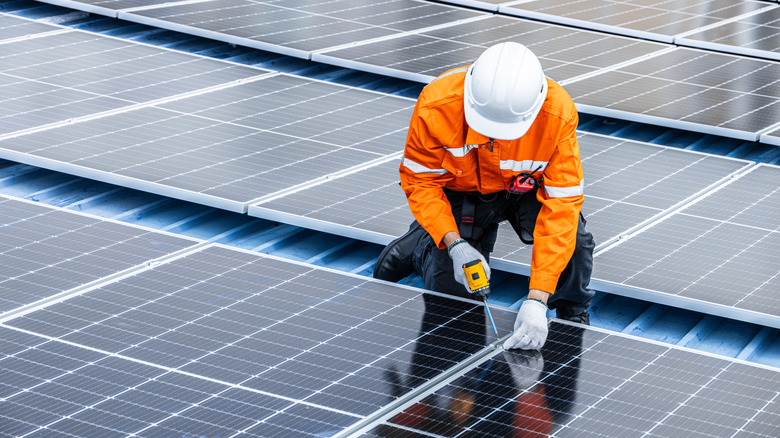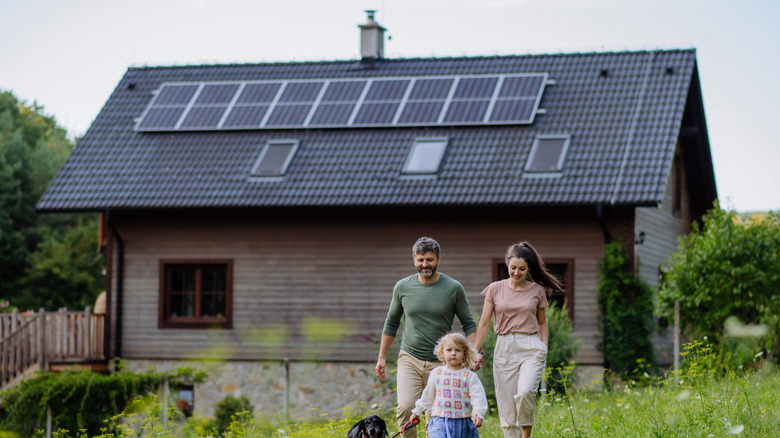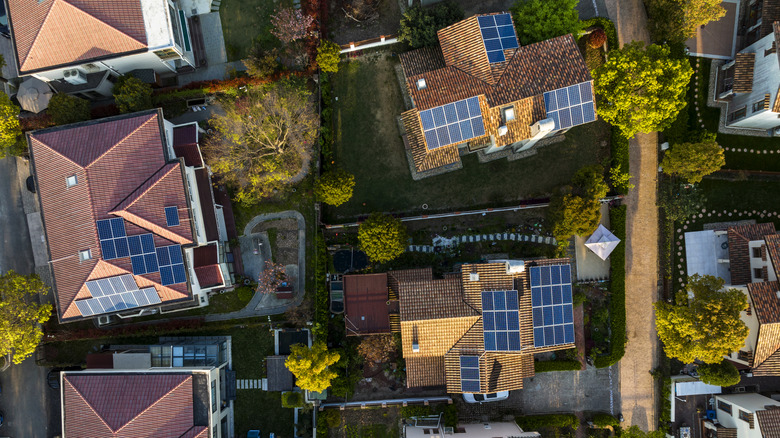Are Free Solar Panels Legit? Here's What You Need To Know
You might have noticed ads for free solar panels appearing on social media platforms and YouTube recently. With energy costs on the rise and growing interest in sustainable living, many companies are promoting "free" solar programs to attract attention. The promise is certainly appealing — so much so that it might seem too good to be true, or even suspicious. So, what does "free" really mean, and are these offers legitimate?
The ads claim that everything from the initial checks and surveys to installation, maintenance, and even scaffolding is completely free. They promise no upfront or ongoing fees and suggest that the solar panels will significantly lower your electricity bills. It sounds like an amazing deal, doesn't it? This offer is particularly intriguing when you consider how much solar panels typically cost. While costs can vary widely across states, the price of a solar panel system generally ranges between $15,000 and $50,000. So, let's look take a look at the fine print.
The 'free solar panel' marketing doesn't come from solar power installers
Often, the companies promising free solar panels aren't actually in the solar energy business at all. Instead, they're marketing agencies hired by solar companies to generate sales leads. Their primary goal is to collect your contact information, which they then sell to companies that can provide quotes, sell, and install solar panels.
These marketing agencies aren't outright lying, but they do spin the information to make it sound more appealing and get you in the door. What they're usually referring to by "no-cost solar" offerings are solar leases or power purchase agreements (PPA) that let you install solar panels without paying the cost upfront. While financing options like these can make solar panels more accessible, claiming that they're entirely free is a bit of an exaggeration. These agreements can, in some cases, help you save money on your electricity bill, but it's important to do the math.
What is a solar lease or PPA?
Now, let's explain how this works. Solar leases and PPAs provide a way to access solar energy without covering the upfront cost of panel installation. This is because the homeowner doesn't own the solar panels — the company does. The payment structure varies slightly between the two. With a solar lease, you pay a fixed monthly fee for the use of the panels, while with a PPA, you're charged based on the electricity you consume, similar to how you'd pay any other utility company.
At the end of your PPA or lease term, you'll have some options. You can renew the agreement, have the system removed ... or sometimes you can purchase the panels from the company, at their market value. Not for free, of course.
When deciding whether to own or lease, it's worth considering government incentives. For instance, the Solar Investment Tax Credit (ITC) allows you to claim a percentage of your installation costs as a tax credit. However, if you opt for a PPA or lease, you won't be eligible for this benefit, as the installer will receive it instead. Beyond the ITC, many states and local governments offer additional tax credits and rebate programs, which are worthwhile to explore when deciding if solar panels are worth it for you and your family — and how to get them.


